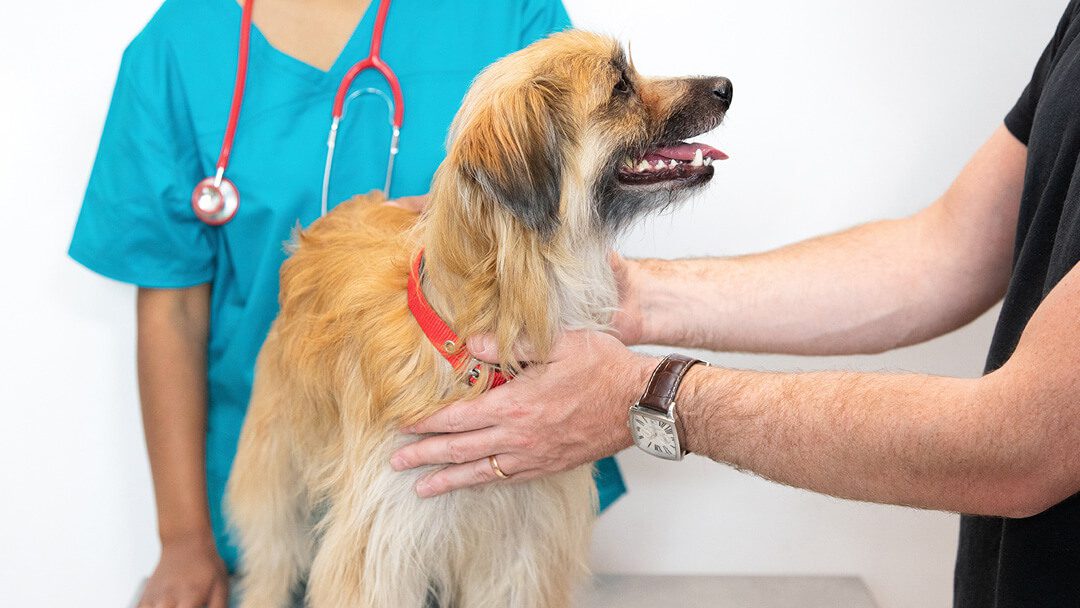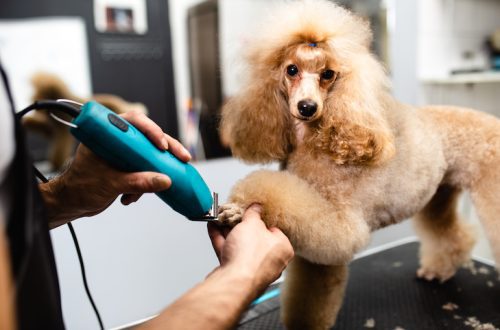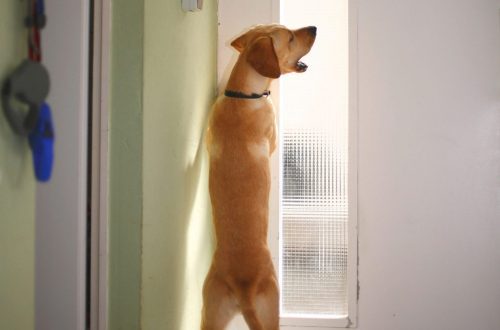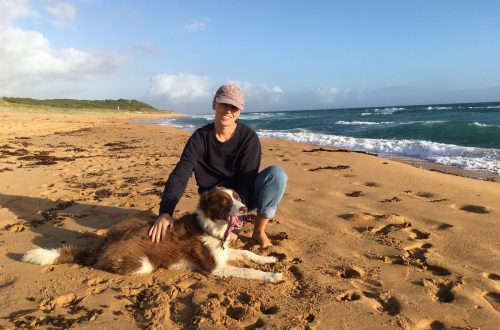
Checking a dog with a veterinarian
At all stages of a dog’s life, regular visits to the veterinarian are very important. This is especially important when you have just brought a pet home – he needs to do special tests and vaccinate. And here it does not matter whether you brought a puppy from the street, knowing nothing about it, or took a dog with existing diseases. As your pet ages, it will be more likely to develop diseases and require special treatment. Regular health checks on a dog will make a difference in its growth and development at every stage of life.
Traveling to the vet with a puppy
If you have a puppy, the first thing you should do is take him to the vet. The first visit to the clinic includes a physical examination of the pet, deworming, stool tests and vaccinations, as well as teaching you how to care for your new friend. Before visiting the clinic, make a list of questions in advance, and also prepare all the information about the health of the pet provided by the shelter, pet store or breeder. You will need to come back in a few weeks for a follow-up vaccination.
What to expect
When your puppy grows up, he will need to visit the veterinarian one way or another – in case of illness, as well as for preventive examinations. An annual visit to the clinic will allow the doctor to perform a physical examination of your dog. This process includes taking body temperature, weighing and checking the heart, lungs, stomach, teeth, eyes, ears, skin and coat. It is essential to continue annual visits so that the veterinarian can monitor your dog’s health and stay in touch with him.
Other reasons to take your puppy to the vet
Aside from annual checkups, there are several other reasons why you may need to visit a veterinarian. Because puppies are restless little explorers, it’s possible they may be exposed to common ailments such as ear infections, urinary tract infections, bacterial infections, skin allergies, arthritis, and bowel disease.
Also, be sure to document any abnormalities you notice in your puppy if you suspect he is sick. Then you can report them to the veterinarian and simplify the diagnosis. Be sure to note when the symptoms started and after what, such as after eating or playing outside.
Another important reason for visiting a clinic is to spay a dog. Find out more about its health benefits and what to expect from this procedure.
How to make your visit to the veterinarian productive
A trip to the vet can be stressful for you and your dog. There will be many unfamiliar places, smells, sounds, people and animals that can distract or scare the pet. Here’s what you can do to make your visit to the veterinary clinic comfortable:
- Play with your puppy or take him for a walk before you go to the appointment. This will give him the opportunity to relieve nervous tension, as well as prevent possible accidents in the veterinary clinic.
- If your dog is small enough, consider taking it to the veterinarian in a dog carrier. She will protect the puppy from aggressive animals, and also will not let him run away. If he is sick, this will give him the opportunity to rest. Also put a blanket and a toy that your pet usually sleeps or plays with in the carrier for a familiar item to help calm him down.
- Try to keep your dog calm while you wait your turn. And, although it will be interesting for her to meet other animals, it is better to keep her on her lap or near you. Pet her often and talk to her in a calm tone to help her relax. When you enter the examination room, ask your veterinarian if you need help holding the dog. Clinic staff are usually experienced in dealing with nervous and fearful animals, but if you think a dog will feel more at ease in your arms, then it’s worth a try.
- Veterinary clinics and hospitals are usually very busy. If you need more time to talk to your veterinarian, make sure to arrange this at the time of your appointment and do not visit the clinic during peak hours. Clinics, as practice shows, are most loaded early in the morning or in the evening.
- Take your pet to a specialist regularly to be weighed and examined. The more often the veterinarian meets with your dog, the better he will be able to understand his needs and the more comfortable he will feel in the clinic.
Also, be sure to ask your veterinarian for advice on keeping your puppy healthy at home, including proper nutrition, exercise, and grooming. Taking good care of your puppy between checkups will increase the likelihood of a successful visit to the vet and reduce the need for unscheduled checkups.





